By: Francis Mwangi MA
“Truly, the attitudes and perceptions of the locals towards politics, elections and ethnic differences, have and continue to transform, compared to the pre-Shalom intervention period. It is a journey that we started, and must be sustained.” – Molly Omwa, Shalom-SCCRR trained peace monitor, from Kisumu Nandi borderline
According to Office of the UN High Commissioner for Human Rights (OHCHR), 1,200 Kenyans were reported killed, thousands more injured, over 300,000 people displaced and around 42,000 houses and many businesses were looted or destroyed, in 2007/2008, following a disputed general election. The election was marred with massive irregularities.
Along the Kisumu-Nandi border, in 2013 general elections, violent scenes that were characterized by maiming, killing and destruction of property were witnessed. Similar situation of electoral violence was witnessed in 2017, following contested presidential results. This kind of electoral violence with devastating effects called for a swift response from the most capable to end the cycle.
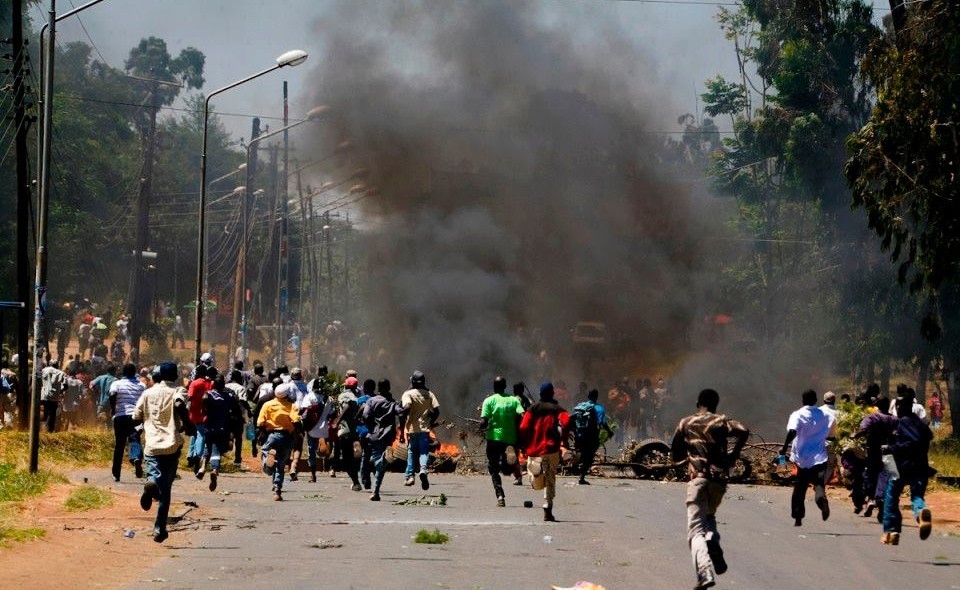
Shalom-SCCRR intervention along the Kisumu-Nandi borderline, was initiated in October 2017, following an urgent invitation by the local government administrators, community, religious and lay leaders, to respond to the crisis that required a peacebuilding expert to offer a long-term solution. Since then, Shalom-SCCRR personnel have continued to actively engage both ethnic communities in conflict transformation and peacebuilding activities, including the just concluded August, 2022 Kenya’s general elections.
Shalom-SCCRR mobilized its highly qualified team of researchers and conflict and peace personnel to conduct a thorough conflict analysis. The team engaged key influential stakeholders from both communities, local government administrators (Chiefs and their Assistants), religious leaders, NGOs and community socio-economic groups. This exercise helped to establish the conflict causal factors, drivers and dynamics. The findings were used to design effective interventions and strategies for a joint community-centered conflict transformation and peacebuilding.
After 4 years of intervention at the Kisumu-Nandi borderline, Shalom-SCCRR has conducted more than 89 conflict transformation and peacebuilding training workshops, empowering 1,541 local peace actors – men and women – who played diverse leadership roles in their communities. A strategic group was given further training in particular subject areas, thereby, graduating them to Shalom Community Resource Persons (CRPs) and facilitators at the grassroot level. The CRPs were key in initiating peace actions along the volatile borderline during and after the hotly contested Kenya’s August, 2022 general elections.
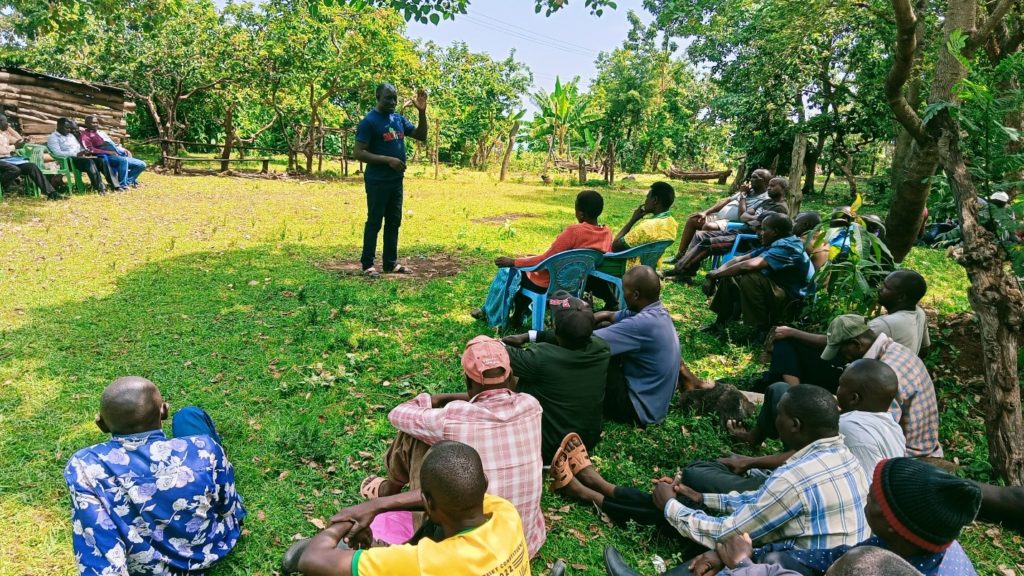
Informed by the communities’ needs, and our unique peacebuilding methodology (a nexus between humanitarian-peace-development), we have provided material support to more than 20 Primary and Secondary Schools along the shared borderline. Learning institutions in this area lack vital physical/structural infrastructures, and have suffered from the impacts of enduring violent ethnic conflict. We provided materials for physical/structural development (classrooms, standard latrines, fencing, desks, lockers etc.) and teaching and learning resources (textbooks, stationery, science laboratory equipment etc.).
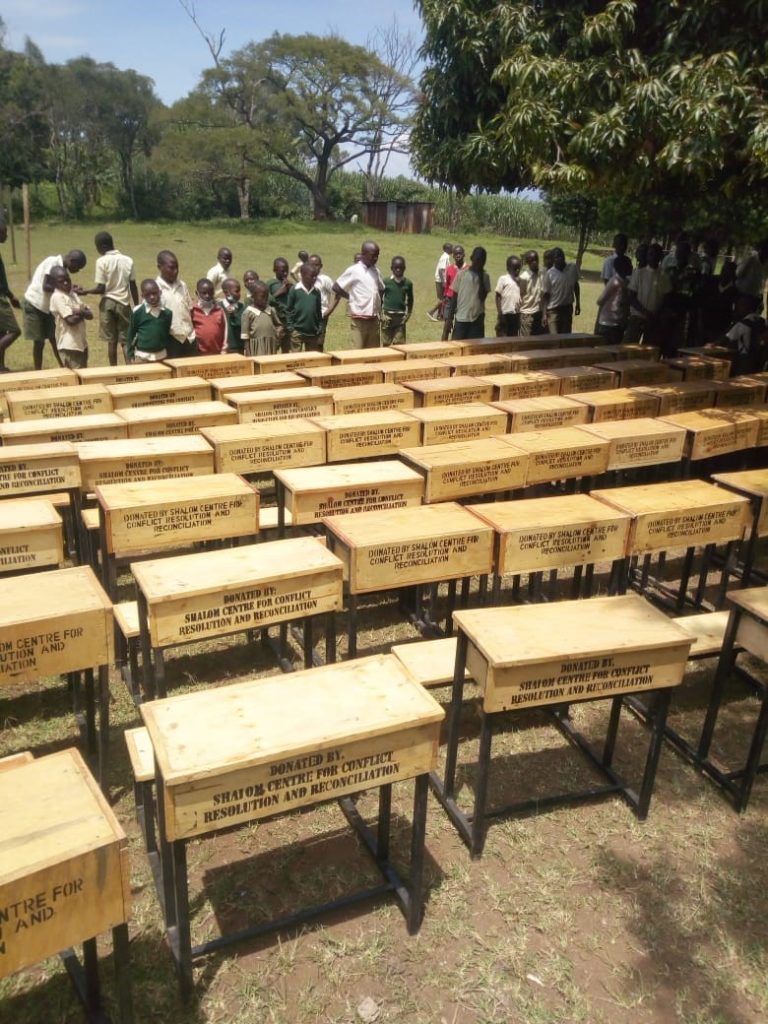
We have implemented 36 schools/educational development projects, impacting more than 9,000 boys and girls.
Retired Chief Ambrose Ng’etich a trained Shalom-SCCRR peace resource person from Tinderet Sub-county, Nandi County, recognises the Shalom-SCCRR unique conflict transformation and peacebuilding methodology; he attests to its effect in preventing electoral/political violence in the just concluded August, 2022 general elections. “This is a huge result for the communities”, he says.
Ng’etich remarks, “despite the fact that the two ethnic communities were on opposing sides of the main political coalitions, and the presidential results as announced by the IEBC [Independent Electoral and Boundaries Commission] were contested through a judicial petition at the Supreme Court, we remained calm, peaceful and safe in our homes, and the local businesses operated as usual.”
Fergal Keane, the renowned BBC Africa correspondent, who reported on the widespread violence at the Kisumu-Nandi volatile borderline in 2017, recognized the contribution of Shalom-SCCRR. He says, “Kenya needs them in its slums and beleaguered western villages,… what they do here matters to all of Africa…”
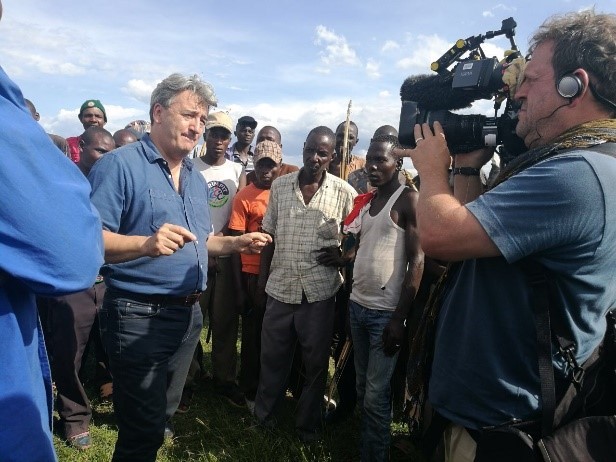
Mr. Benedict Oloo, a community leader and a Shalom-SCCRR trained peace resource person, says: “the commitment of Shalom is second to none… the best we could have during this tense election, especially in such a fragile area.” He further notes, “we are empowered to be solution-finders irrespective of the conflict situation.”
From our Monitoring Evaluation and Learning department, some of the key Outcomes (convertibly – Metrics of success) of the Shalom-SCCRR’s Peacebuilding and development interventions along the Kisumu-Nandi border include:
- Enhanced collaboration, partnerships, and local structures etc., for conflict prevention and management between the two ethnic communities.
- Constructive participation of the grassroot communities in all stages of the peace process, leading to increased local ownership and sustainability of the joint peace ‘product’, and safeguarding of the Peace Dividends.
- Development of social and economic structures resulting from the joint intercommunal peace initiatives.
- 36 Schools/educational development projects completed in 20 Primary and Secondary Schools. In effect, improving the learning environment, learners’ health outcomes (through standard: sitting arrangements, sanitary and hygiene facilities etc.), and ultimately better academic grades.
- Increased safety for socio-economic infrastructures, schools (including uninterrupted learning), health centers, markets etc.
- Shalom-SCCRR trained peace monitors improved capacities for data collection and analysis, a critical component for designing interventions that were effective in preventing election-related violence.
- Improved intercommunal social and cultural relationships; consequently, providing a supportive environment for local trade and farming activities.
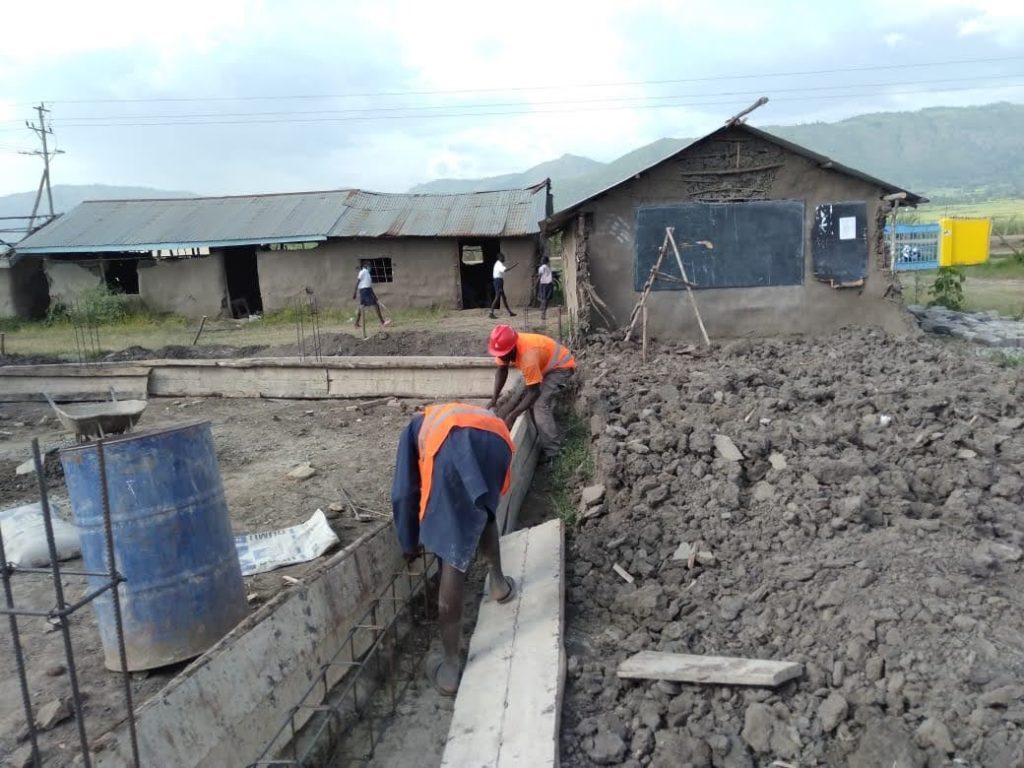
Shalom-SCCRR, their donors and friends for the enormous contributions to our schools and communities. Your generosity is a foundation for a transformed and educated generation, molded in a culture of peace through the Shalom’s Peace Education Syllabus.”
The peacebuilding intervention results by Shalom-SCCRR along this borderline, demonstrate a growing political and election maturity that must be nurtured and sustained, as the two ethnic communities look forward to an inter-dependent future that is defined by peaceful coexistence and collaborative/joint socio, economic and political development.
Compared to the killing, maiming and displacement that happened in the previous elections, this is a magnificent success.
Author:
Francis Mwangi MA, Shalom-SCCRR Monitoring, Evaluation, Research and Learning Officer
Relevant Links
https://shalomconflictcenter.org/bbc-and-shalom-sccrr-confer/
https://shalomconflictcenter.org/briefing-paper-no-7-an-analysis-of-luo-nandi-conflict/
https://shalomconflictcenter.org/2021-shalom-sccrr-results-achievements/
https://shalomconflictcenter.org/2009-2021-shalom-sccrr-results-and-achievements/
https://shalomconflictcenter.org/kenya-elections-2017-response-to-shaloms-interventions/
CONNECT WITH SHALOM-SCCRR

